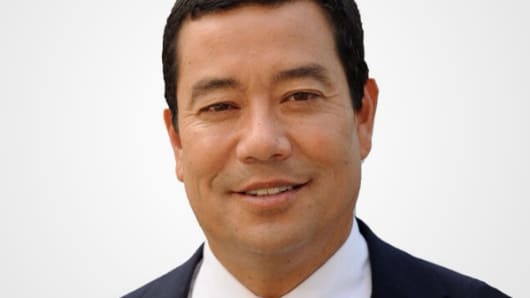Rising interest rates and inflation are not necessarily a negative. Here are three reasons why:
1. Rising interest rates rates mean a better economy. Economic growth tends to spur inflation. I recognize that stagflation is possible, but is not necessarily an absolute outcome. Rising interest rates suggest economic growth and that's good for stock prices and the overall economy.
(Read more: Why stocks sold off after the Fed: El-Erian)
2. Companies need pricing power and inflation provides that opportunity. Companies have been meeting earnings estimates based on cost cuts and it has been effective but that can only last for so long. In the end, margin expansion requires not only investment in technology to increase efficiency, but inflation in order to provide an opportunity for companies to raise prices. Inflation does just that. Yes, rising inflation also can negatively impact margins because of increasing input costs. But investors must attempt to determine which companies will be most impacted by input cost increases and to avoid those stocks.
3. Investors living off the income from their investments will finally get a fair deal. Millions of fixed-income investors are earning negative yields on their fixed income. The 10-year Treasury currently earns less than 3 percent and, when factoring in inflation at current levels, are essentially earning nothing. It's a horrible outcome for millions of investors who thought that investing in conservative fixed assets would provide them the income stream they needed to live the rest of their life. Rising interest rates and inflation ultimately will provide more income and allow those who have saved to finally reap the rewards of physical discipline.
(Read more: Fed is now doing 'qualitative easing': Insana)
What we should all be concerned about regarding rising interest rates is hyperinflation. Hyperinflation is a killer for economies and something the Federal Reserve is watching very carefully. But it's pretty clear from the testimony of Janet Yellen that she does not expect outcome; that is likely why she has made the pledge continue to keep interest rates low long after the economy has started to accelerate in terms of economic growth.
So what does this mean for you as an investor?
1. Don't run from equities. Just be aware the volatility will be part of the equation as interest rate talk rattles the market. Stick with companies that have great cash flow, focus on technology to make companies more efficient, a global presence, and can effectively adapt to higher interest rates.
2. Remember fixed-income assets can lose value if interest rates rise. It's still not too late to trim back long-term fixed income positions. And strongly consider whether you want to absorb the risk associated with fixed income assets with long maturities (10 years ) if you're about to invest in these positions. Interest- rate cycles come and go; the last thing you want to do is be selling bonds when interest rates have already spiked and you have capital losses.
(Read more: What are stocks doing now? Click here)
Last, but not least, celebrate that the United States may actually be moving towards a less-managed economy and more towards a free-market system. While the heavy-handed Fed will still influence markets for a significant period of time, there's something to be said for the freedom of economic cycles.


